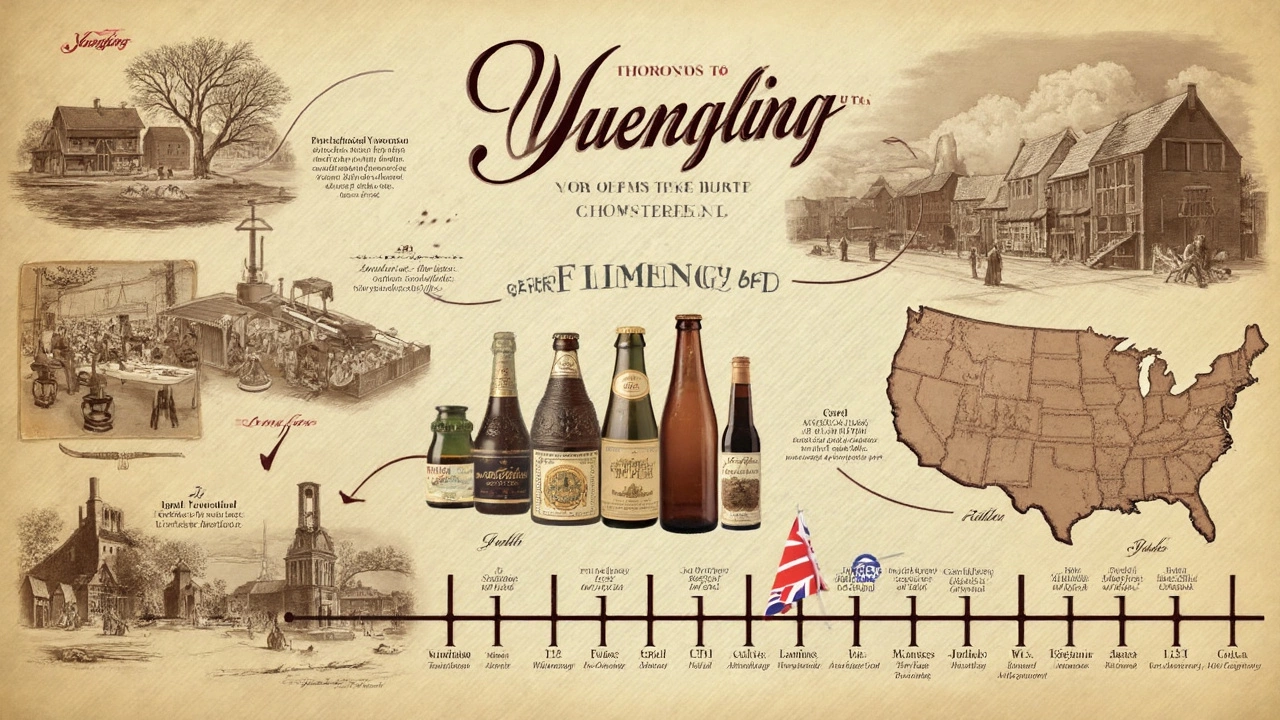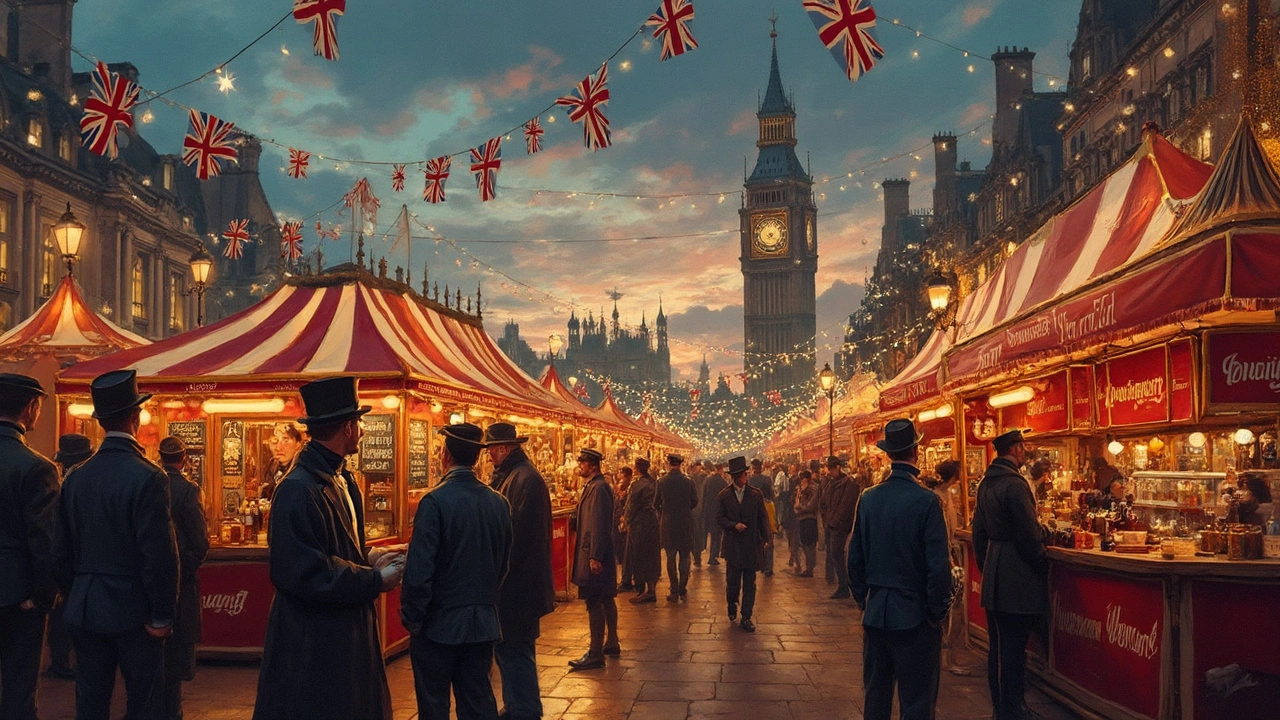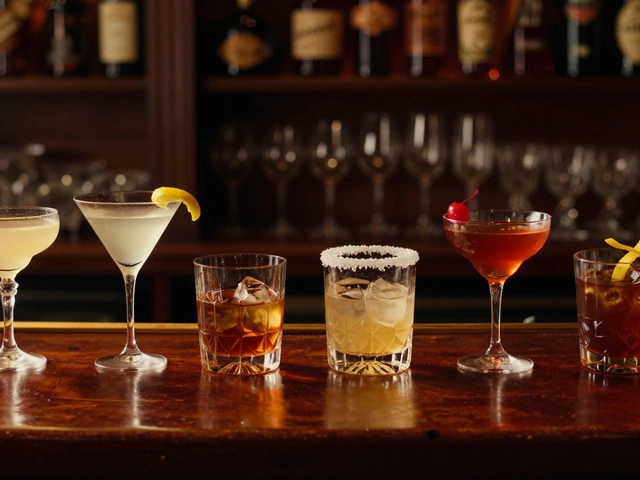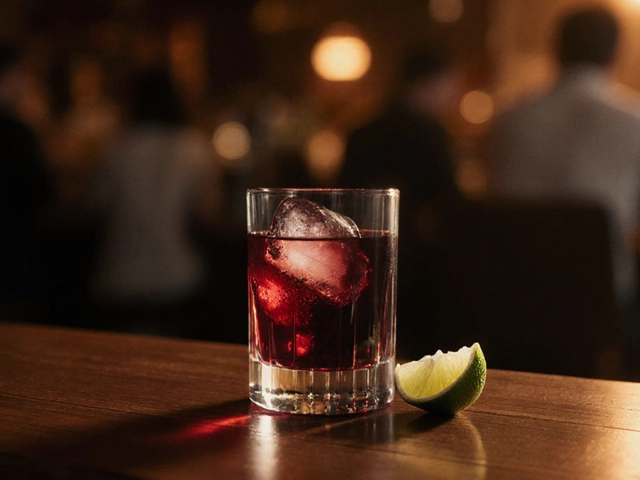You've probably heard of Yuengling if you're into beer, especially if you enjoy a good festival with a cold one in hand. It's got that reputation as America's oldest brewery, so naturally, people are curious about who's pulling the strings behind the curtain. Does Budweiser, one of the kings of beer, own this historic gem?
Let's get it straight from the start: Yuengling is still proudly independent. They aren't owned by Budweiser or any other beer giant. Yep, it's true. But why is this such a big deal? Well, ownership affects everything from the taste of your favorite lager to the kind of beer fests you'll enjoy. Hang on as we spill the beans on what's brewing, pun totally intended!
- The Origins of Yuengling
- Budweiser: A Brewing Titan
- The Truth About Ownership
- What It Means for Beer Lovers
The Origins of Yuengling
Yuengling's story starts way back in 1829, which is like ancient history in beer years. David G. Yuengling opened the Eagle Brewery in Pottsville, Pennsylvania. Back then, the place was all about traditional German brewing techniques, and it quickly got a name for itself as a top dog in the lager scene.
After a fire in 1831, the brewery got a makeover and became known as D.G. Yuengling & Son, marking a family affair that's been passed down through generations. This place isn't just a brewery; it's a piece of living history that showcases a family's dedication to their craft.
Today, Yuengling remains a family-run business, now in its sixth generation. Talk about commitment! This strong family bond is one of the key reasons they’ve stayed independent, turning down all those enticing offers from bigger companies like Budweiser. It's their way of sticking to their roots and doing things the Yuengling way.
Over the years, their portfolio has expanded but the flagship offering, Yuengling Traditional Lager, is still a fan favorite. Many folks bond over it at festivals, sharing in that rich heritage and unique taste that Yuengling has nurtured over the decades. True independence and tradition, right from the heart of Pottsville.
Yuengling's independence doesn't just make for a great backstory—it's a competitive edge in a market loaded with giant brewing companies. Cheers to that slice of American brewing history!
Budweiser: A Brewing Titan
When it comes to Budweiser, we're talking about a colossal force in the brewing world. Owned by Anheuser-Busch InBev, one of the largest beer conglomerates worldwide, Budweiser has its roots stretching back to the scenes of 1850s Czechoslovakia. It was introduced to the American market by Adolphus Busch in 1876, and quickly became synonymous with an all-American brewing tradition.
What makes Budweiser stand out? Well, they've got this knack for precision brewing with a unique process involving beechwood aging. This special touch is celebrated among beer enthusiasts. And because AB InBev is a global giant, Budweiser's reach extends far beyond the American borders, filling glasses from New York to New Delhi.
Here's a tidbit that pretty much sums up its legendary status: every year, Budweiser maintains its iconic status by producing over 15 million barrels of beer in the U.S. alone. That's a lot of pints! According to an industry insider, “Budweiser isn't just another beer; it's a template. It's how you make a premium lager go global”
- Beer Advocate Magazine
For those curious about the mega company's diversity, here’s how Budweiser compares with other brands under the AB InBev umbrella:
| Brand | Year Established | Origin |
|---|---|---|
| Budweiser | 1876 | USA |
| Stella Artois | 1366 | Belgium |
| Corona | 1925 | Mexico |
So, while Budweiser may not own Yuengling, its footprint in the beer world is undeniable. Its influence can be seen at every major beer festival, where it’s not just a drink but an experience. If you're at a festival, mingling with the crowd and enjoy a cold Budweiser, you're tasting centuries of brewing history in every sip.

The Truth About Ownership
Alright, let's cut to the chase. Yuengling is not owned by Budweiser, and that fact surprises many people who assume that all major beers are run by a few big players. The family-owned Yuengling operation has been running since 1829, and they're fiercely independent. The company is still owned by the Yuengling family after all these years, proudly keeping it close to its roots in Pottsville, Pennsylvania.
Why does this matter? Well, family-owned means more control over how the beer is crafted and what ingredients go in. They get to keep that tradition and uniqueness in every keg. For us festival lovers, this means when you're sipping a Yuengling, it’s got that authentic touch that's sometimes missing in large, mass-produced brands like Budweiser.
Budweiser, on the other hand, is a huge global brand owned by Anheuser-Busch InBev. These guys have a massive portfolio with all sorts of brands, dominating the beer world internationally. But despite being a titan in the industry, Budweiser hasn't absorbed Yuengling into its portfolio. This status quo leaves Yuengling free to keep doing what they do best—brewing their iconic lager.
For those of us who hit up beer festivals regularly, understanding who owns what can add an extra layer of enjoyment. Imagine being at a festival, beer in hand, knowing that what you're drinking has a story, a heritage. That’s what makes Yuengling special. So next time you're at a fest, you can sip with pride, knowing your lager is as independent as they come.
What It Means for Beer Lovers
If you're the type who loves cracking open a cold one at beer festivals, then the independence of Yuengling is pretty significant. First off, when a brewery remains independent, it usually means you get more authentic and unique flavors that aren’t just churned out to meet massive, generic demands. That's Yuengling for you—consistent flavors, whether you're sipping their traditional lager or exploring seasonal favorites.
But here's where it gets personal: supporting an independent brewery like Yuengling often feels like backing a local team. There's something about knowing your dollars aren't funneling into a corporate giant like Budweiser. It feels, well, pretty rewarding.
And let's talk numbers. The U.S. beer industry is a behemoth, worth over $120 billion. Yet, the charm of a behemoth like Budweiser often lacks the local touch of Yuengling. Plus, having more independent options means there's a better selection at festivals. Variety is the spice of life, right?
So, what does this mean when you're at a beer festival? You'll often find that larger brewers might dominate the tap lineup, but Yuengling holds its own with a strong local presence. This connection is more than a marketing gimmick—it's heritage. The family-run atmosphere translates into products they genuinely care about.
At the end of the day, whether you're a beer snob or just enjoy the occasional brew, understanding the dynamics between giants and independents like Yuengling makes you a more conscious drinker. So, next time you're at a festival, enjoying a pint, maybe you'll toast to more than the flavors—perhaps to the whole culture that keeps your favorite beers true to taste and tradition.


